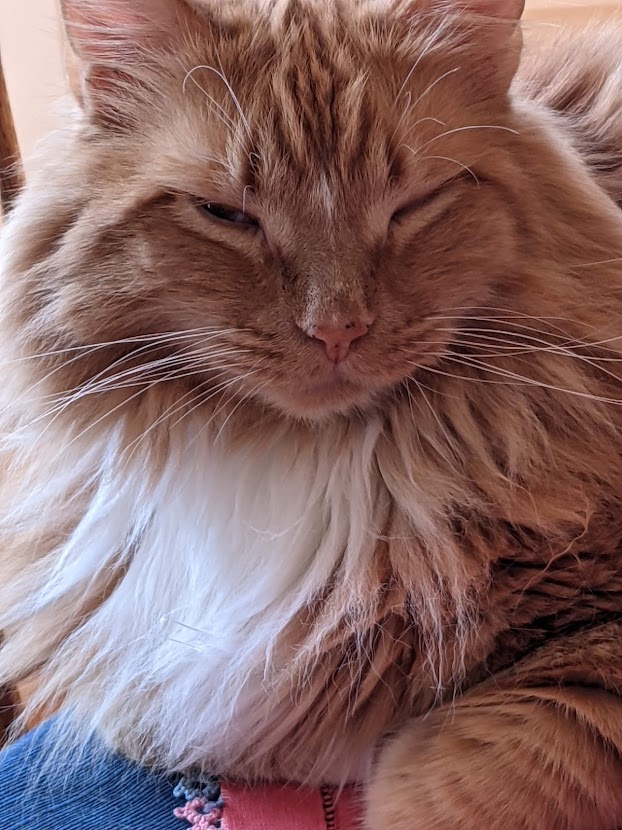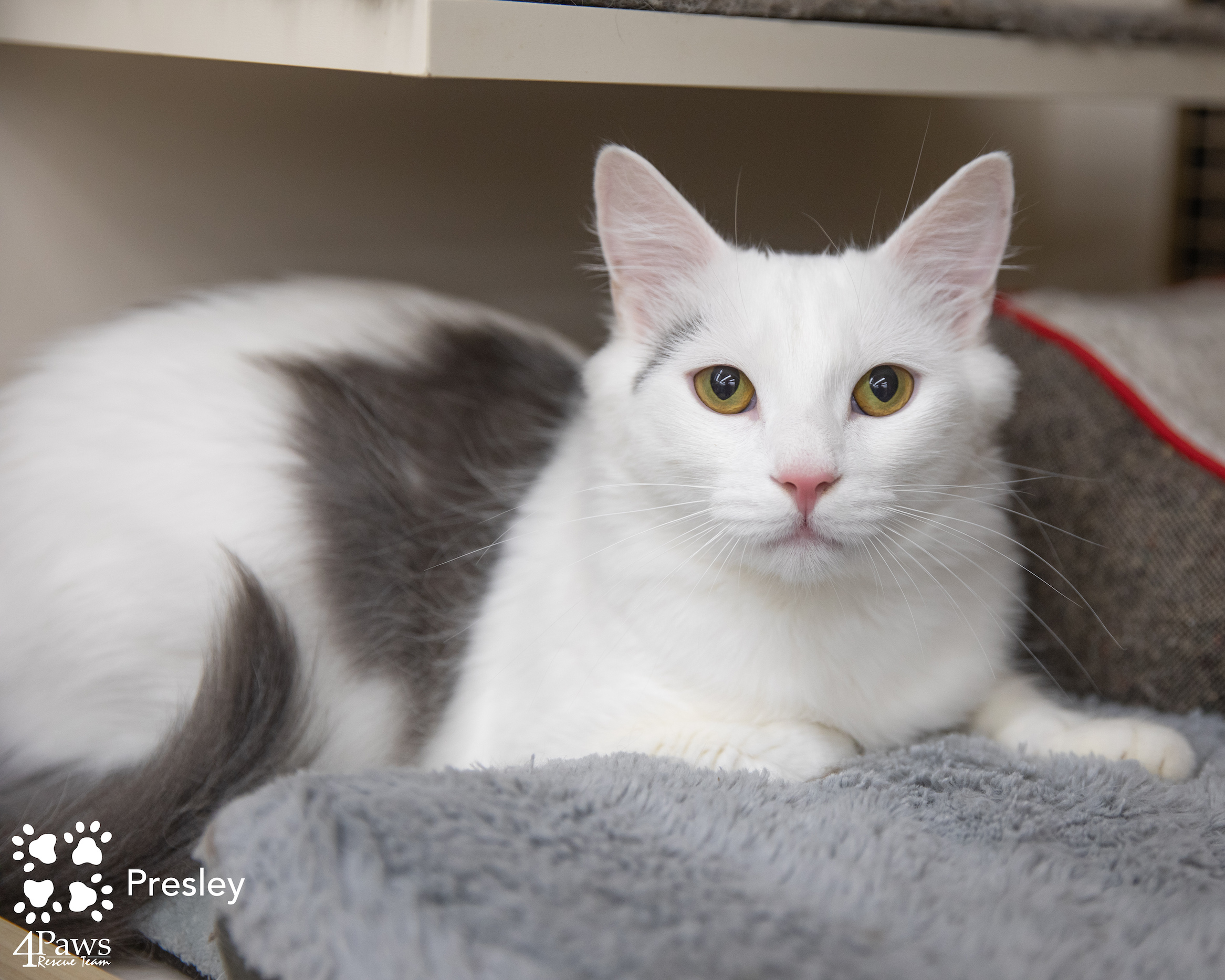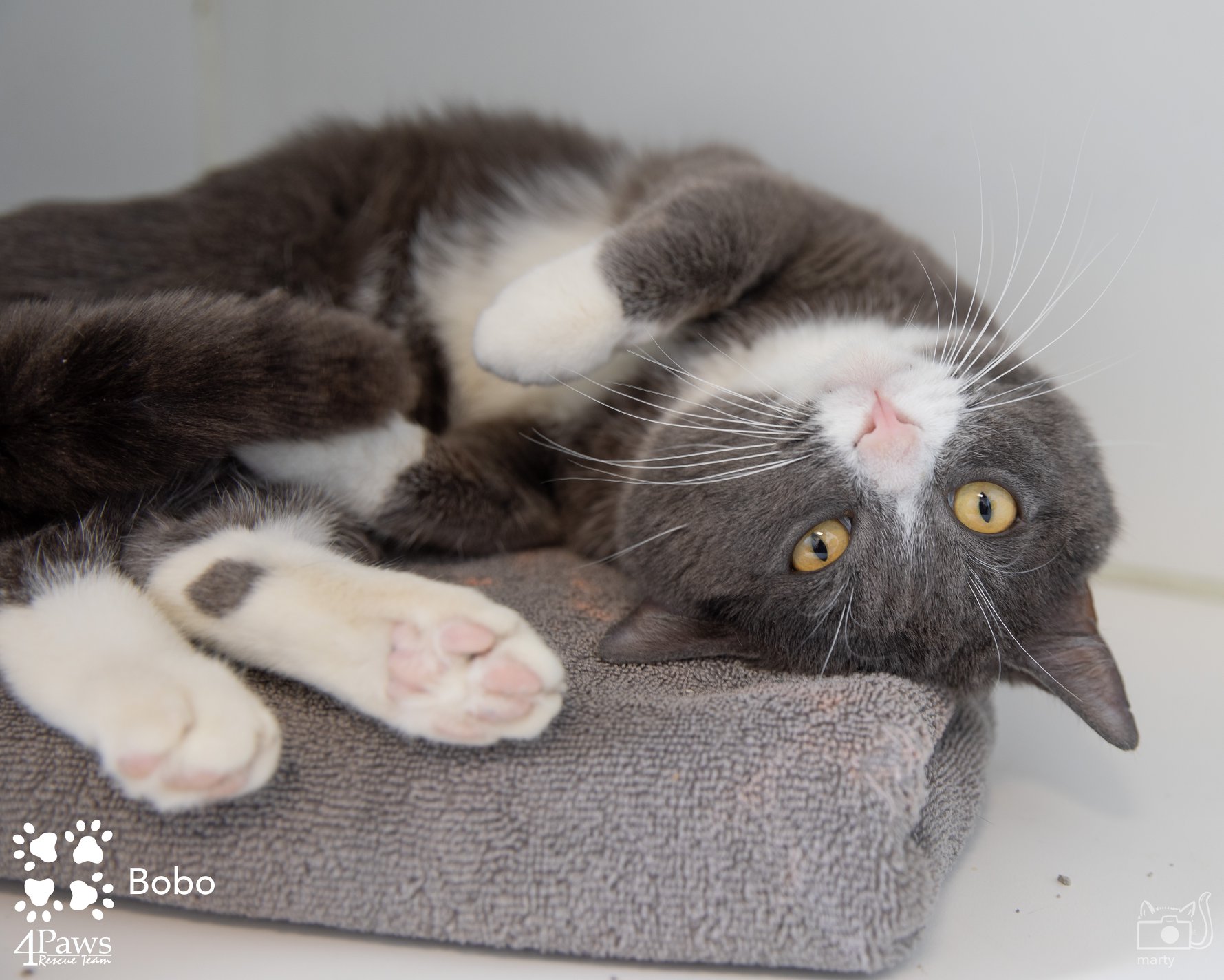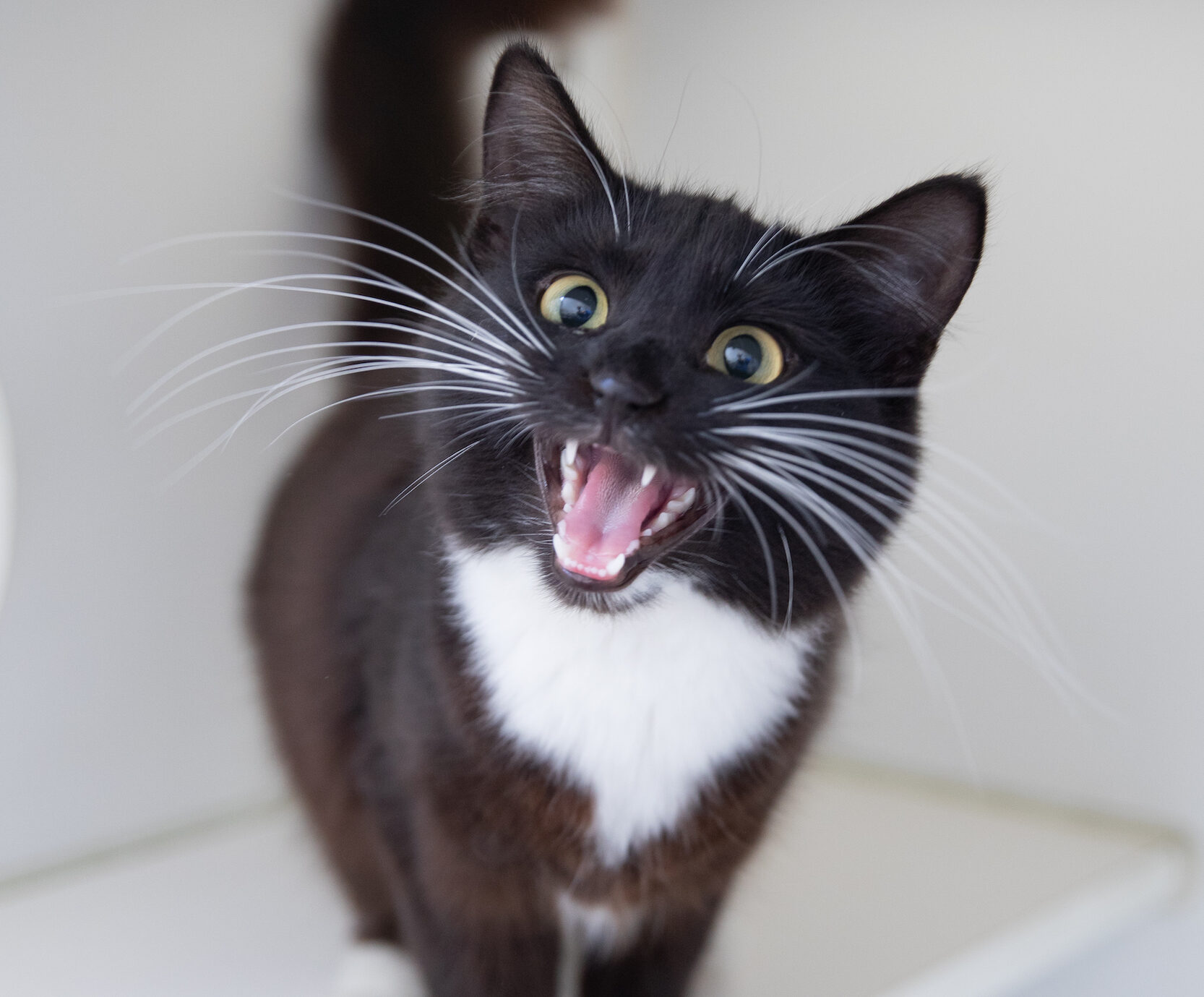By Volunteer Chris Doxey
I recently lost the first cat that I adopted from 4Paws. I adopted Pom Pom in 2013. He was a beautiful Maine Coon mix that was very shy at first but quickly became a beloved family member. He loved to visit my mother in her nursing home and Pom loved to say “hello” to the other residents. He was very loving and gentle. Although Pom continued to be somewhat shy, he loved everyone.
Over Memorial Day weekend, Pom had a choking cough that prompted three trips to our vet as well as one trip to an emergency vet. He was diagnosed with an upper respiratory infection and bronchitis and was given both steroids and antibiotics.
After a few days, his condition didn’t improve, and he started breathing through his month. We went back to our vet, and he was given fluids and antibiotics. On his final day, Pom started coughing up blood and passed away on my way back to the vet. His death was a tremendous shock to us. I’m providing this article to help others deal with the loss of a kitty. I hope it helps!
1) Do not ignore your pain: Ignoring your pain can actually make grief harder. In order to actually heal from the loss of your cat, you will need to actively face your pain and deal with it. If you feel sad and want to cry, then you should cry. Bottling up your emotions will likely extend the grieving process. Keeping your emotions to yourself can also trigger various problems in the future which may result in unexpected “grief ambushes.”
2) Take time to grieve: Losing a cat is like losing a member of the family. As a result, you will need to take time to allow yourself to grieve. Grieving may take days, weeks or months, depending upon how you cope with it.
3) Write down and communicate your feelings: A great way to process your feelings and cope with your grief is through writing. Try writing a journal, poem, or short story to express your feelings. This can be a personal and therapeutic exercise.
4) Look at pictures: After your cat dies, it can be therapeutic to look back at photographs from throughout your cat’s life. This is a nice way to remember your relationship with your kitty and will bring evoke some positive memories. This will also help you to be able to focus on the good times with your cat, instead of the bad times. It’s better to remember your kitty as healthy and happy.
5) Reminisce with family and friends: A great way to cope with the loss of your cat is by reminiscing with close family and friends. Find people who understand what you are going through, and who will be sympathetic of your feelings. One of my best friends wrote a beautiful poem to honor Pom Pom.
6) Do not let others tell you how to feel: In your attempt to seek supportive friends and family members, you may come across some individuals who are not sympathetic to your loss. For instance, some people may not understand the close bond you had with your kitty and say things like “get over it” or “move on, it’s only a cat.” It is your grief, so don’t let anyone tell you when it is time to move on.
7) Eat healthy food and exercise: The loss of your cat is a stressful, sad, and emotionally draining event. As a result, your energy sources may feel depleted. It is very important that you take time to continue practicing self-care.
8) Maintain your daily routine for other pets: If you have other pets, they may also be experiencing grief and confusion as a result of the death of your cat. In order to continue giving your other pets proper care, you should do your best to maintain their daily routine. For example, continue to feed your other pets at the same time as normal and don’t disrupt their usual routine. My other cats, Rudy and Fluffy mourned the loss of Pom Pom since they were bonded and were together constantly. They both looked for him for days.
9) Consider getting another cat: You may feel the urge to rush out and replace your feline companion with a new cat. The decision concerning if, and when, to replace your cat is very personal and you should wait until you feel emotionally ready. As a general rule, it is best to wait until you have mourned the death of your cat and you are emotionally ready to welcome a new cat into your life.
- You may want to start by volunteering as a foster at 4Paws before actually adopting a new cat. This will help you know when you are ready.
- If this was your only kitty and close companion, you may want to get a new cat sooner.
10) Create a memorial to remember your beloved cat: A memorial doesn’t have to be complex or costly, but can consist of a nice garden, statue or plant in your home. We planted a potted shrub for Pom so that we’ll always remember him. It’s placed on our deck so that we see it every day.
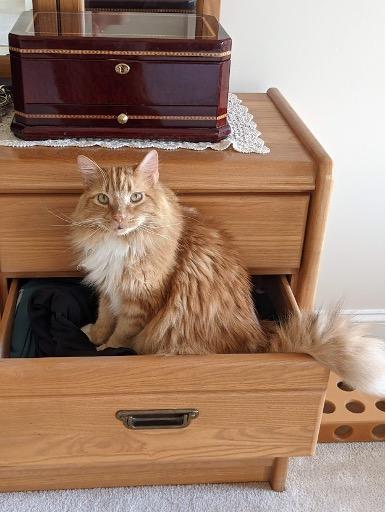
In closing, I know that I did the absolute best to help my kitty. He was loved and very well cared for throughout his life but unfortunately, he just couldn’t be saved. One must never feel guilty when a beloved pet dies. My vet and I spoke today when Rudy and Fluffy were in for their wellness exams. He indicated that Pom probably died from lung cancer. RIP Pom Pom!

